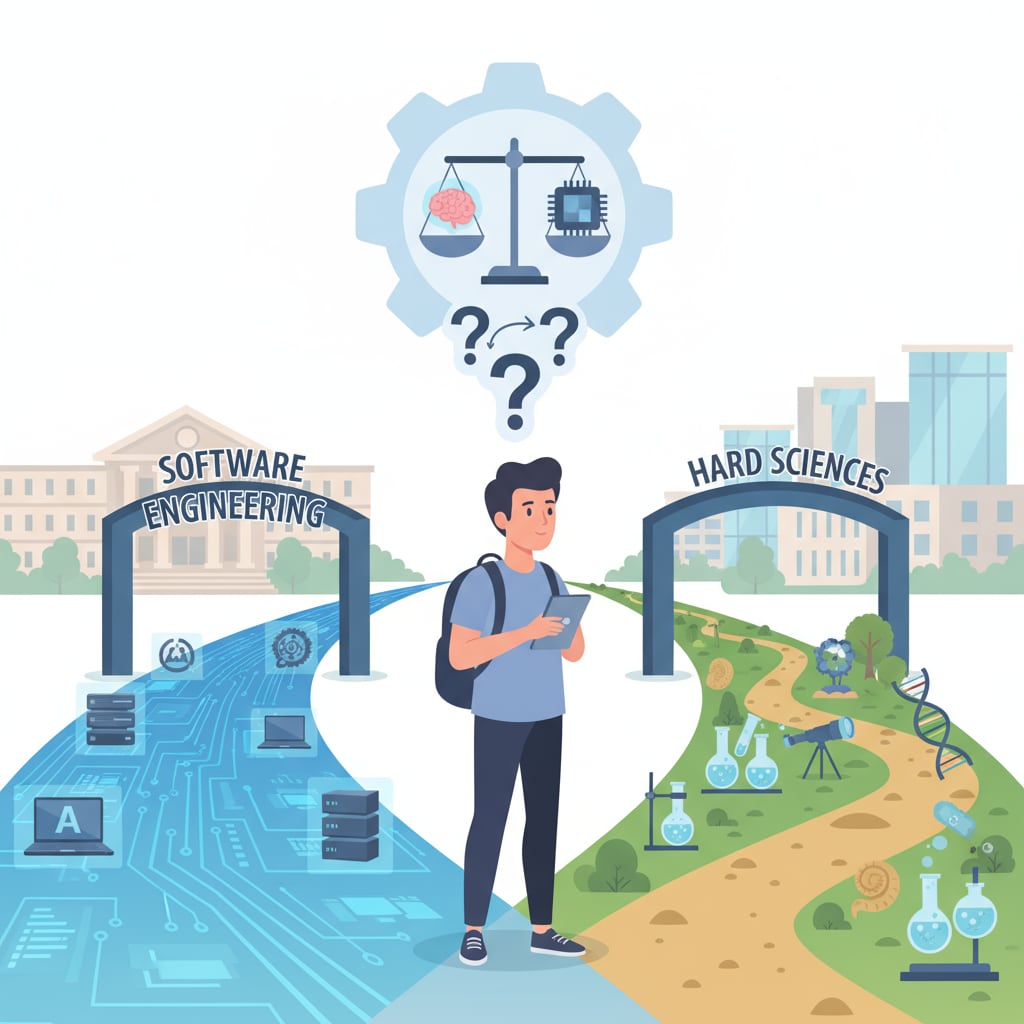Software engineering students often find themselves contemplating a shift towards hard science fields such as computer engineering or electrical engineering during their pursuit of a bachelor’s degree. This major transition can be both challenging and rewarding. In this article, we will explore the feasible paths and strategies to make this transition successful.

Understanding the Disciplinary Gap
Software engineering and hard science fields like computer engineering and electrical engineering have distinct focuses. Software engineering primarily deals with software development, programming languages, and software design principles. On the other hand, computer engineering combines elements of computer science and electrical engineering, involving hardware design, circuit analysis, and embedded systems. Electrical engineering delves even deeper into the study of electricity, electronics, and electromagnetic fields. Recognizing these differences is the first step in bridging the gap.
Self-Study as a Foundation
One of the most crucial steps in the transition process is self-study. For example, start by learning fundamental concepts in physics and mathematics relevant to hard science fields. Online platforms like Coursera and edX offer courses on topics such as calculus, linear algebra, and electromagnetism. Additionally, study textbooks on digital circuits, microprocessors, and communication systems. This self-study will provide a solid foundation for further academic pursuits. Coursera Online Learning Platform edX Educational Platform

Graduate Studies as a Bridge
Applying for graduate programs in computer engineering or electrical engineering can be an effective way to make the transition. When preparing your application, highlight your software engineering background and how it has equipped you with transferable skills such as problem-solving and programming. Many graduate programs also offer bridging courses to help students from different backgrounds catch up on the necessary knowledge. Research universities with strong programs in these fields and their specific admission requirements.
Readability guidance: The key to a smooth transition lies in careful planning and continuous learning. By understanding the differences between software engineering and hard science fields, investing in self-study, and considering graduate studies, students can successfully cross the disciplinary divide. Remember to stay focused and persevere through the challenges.


